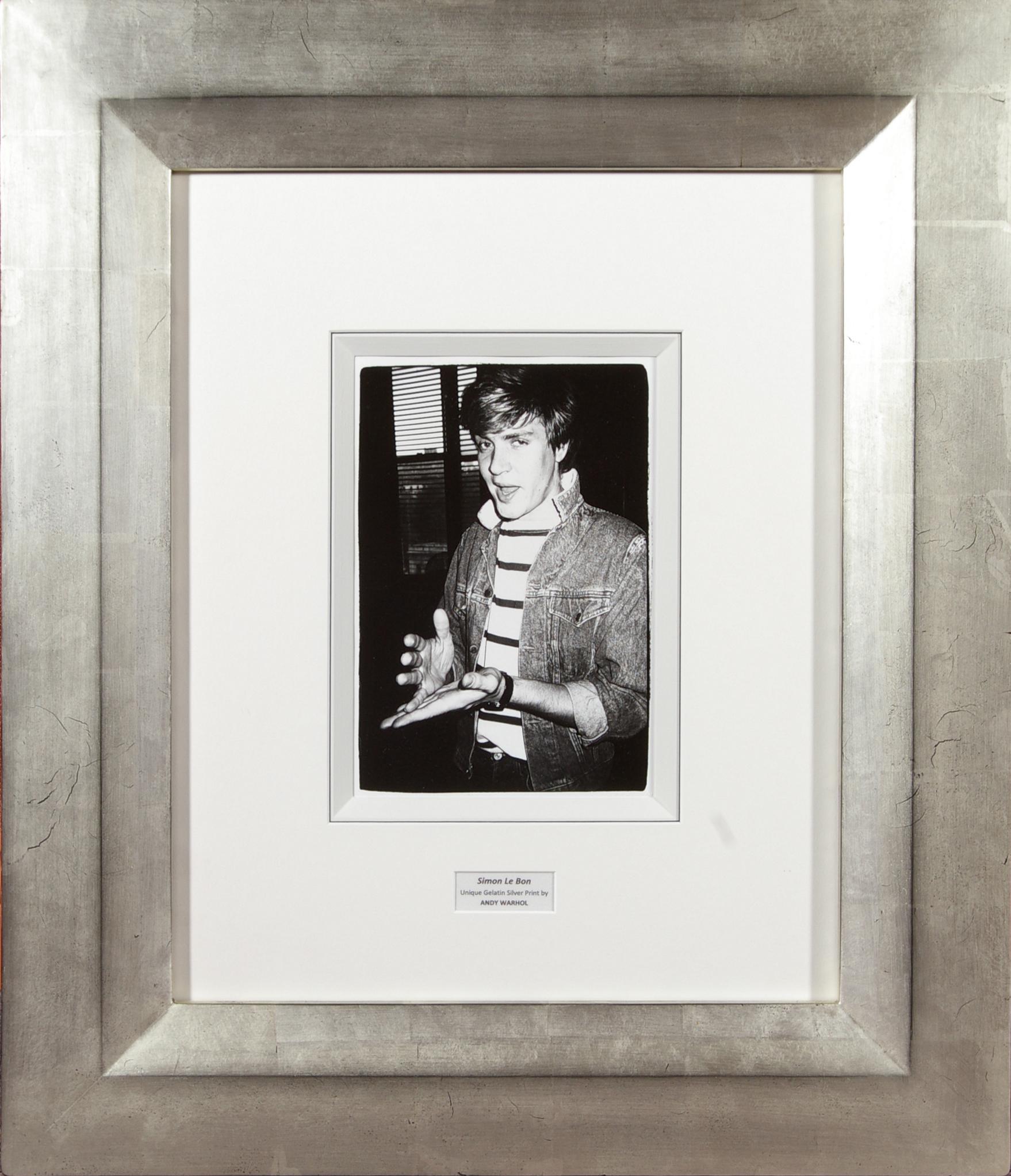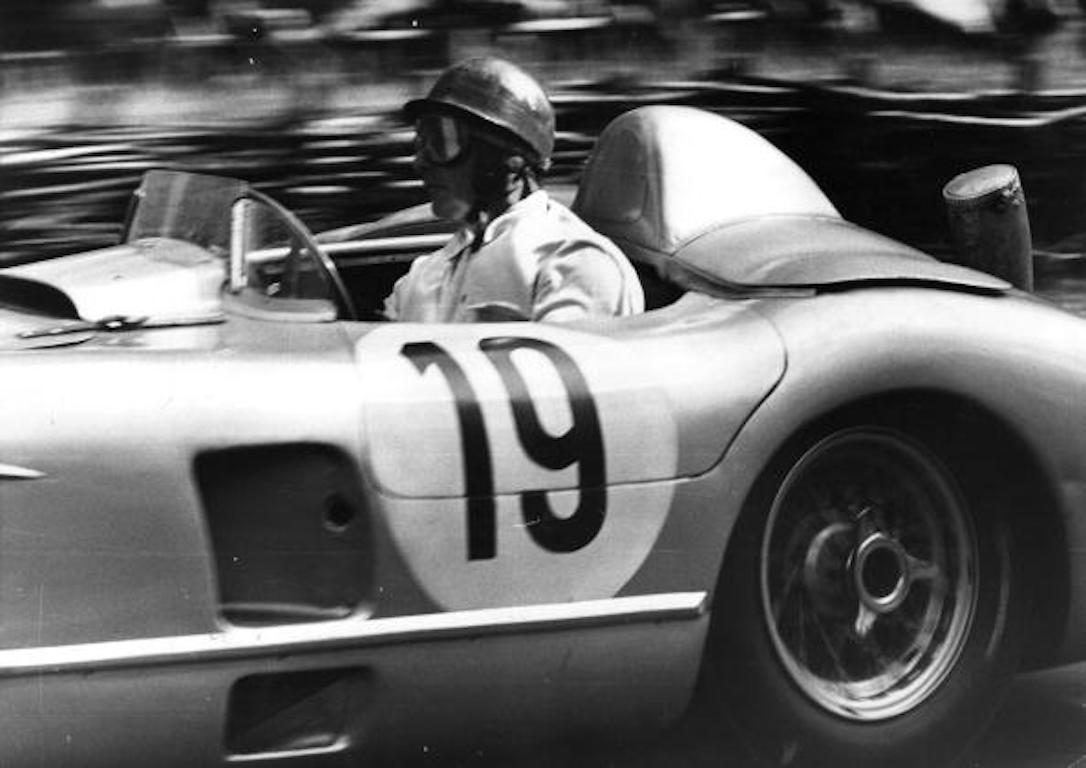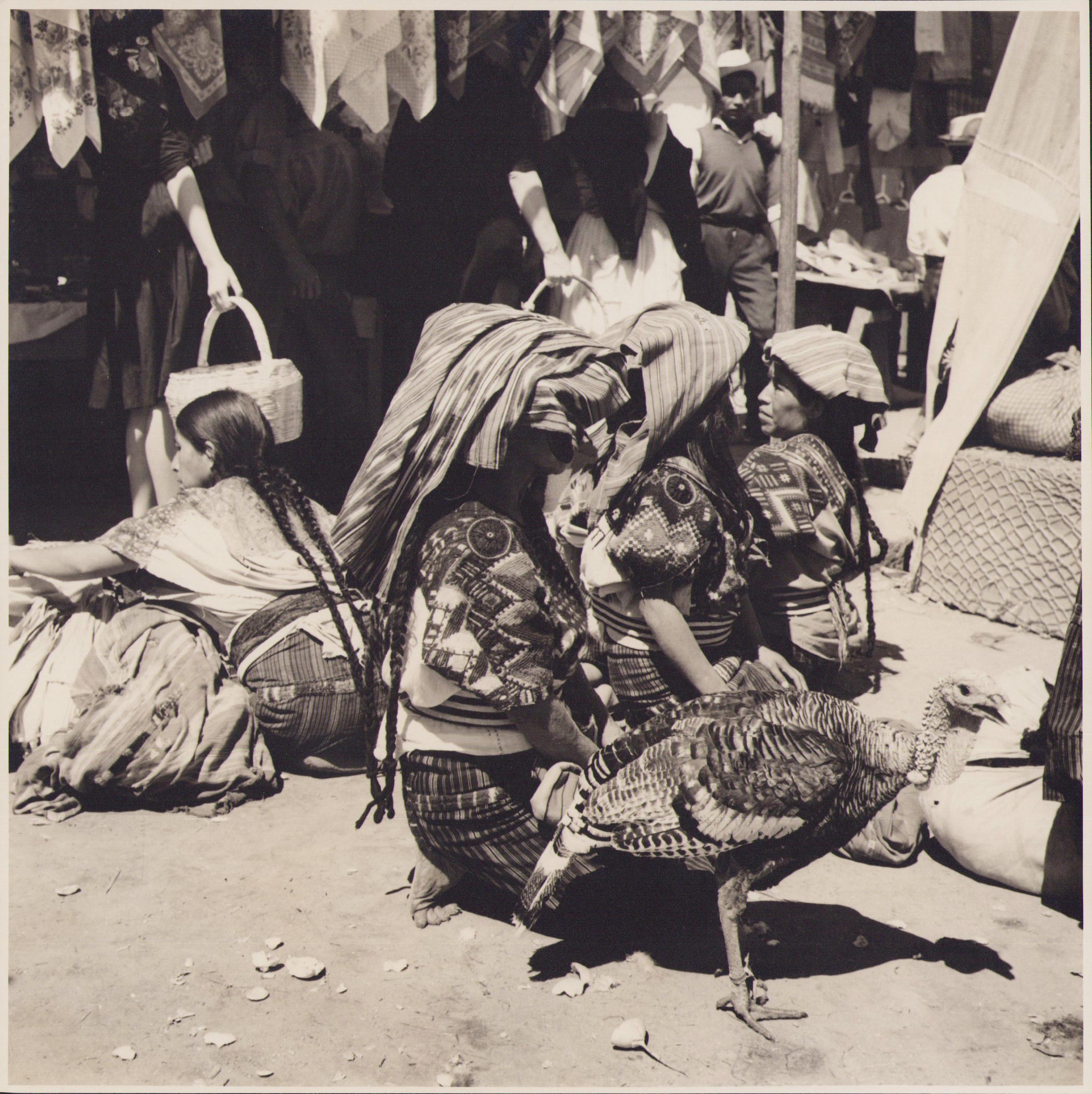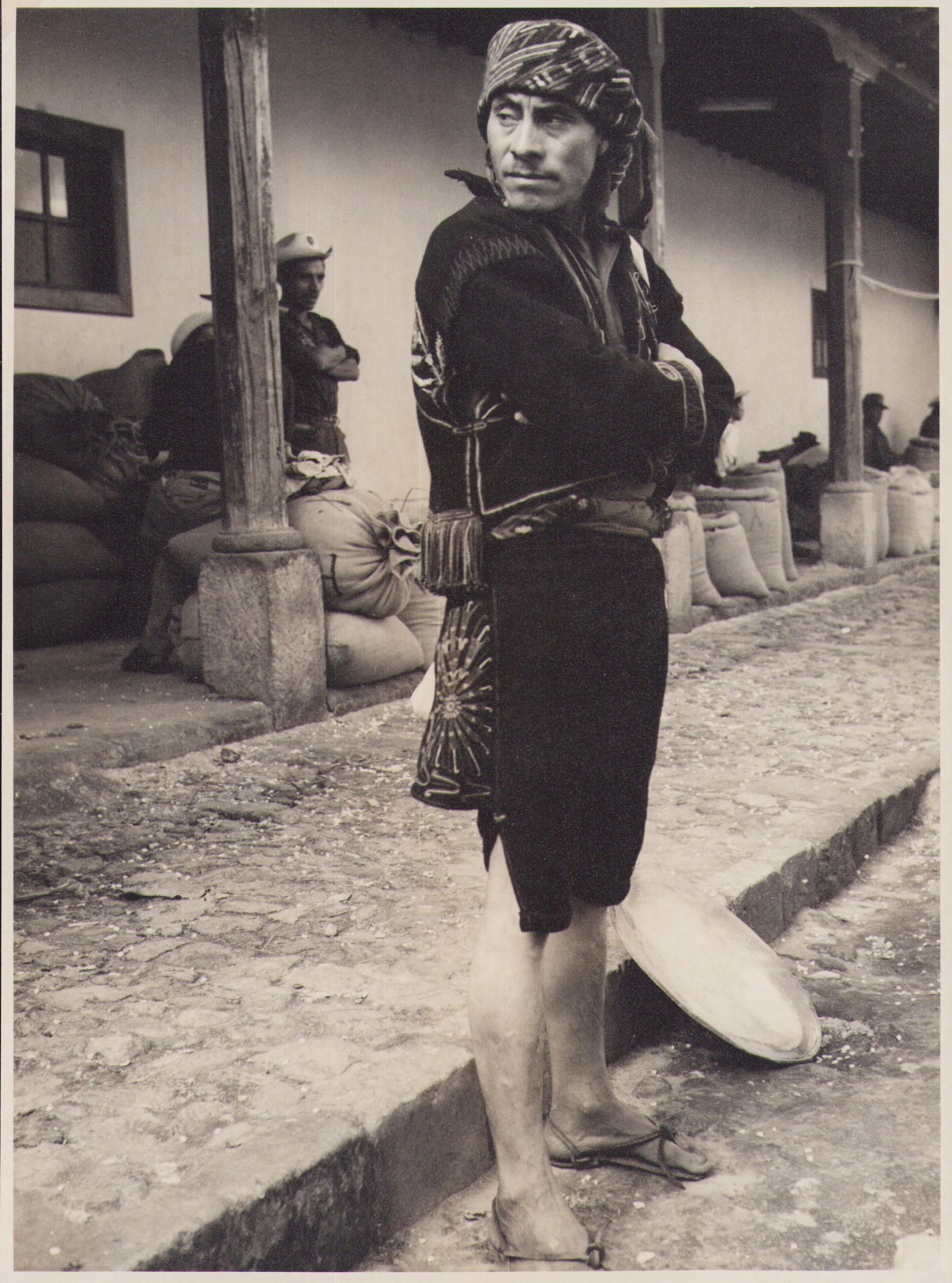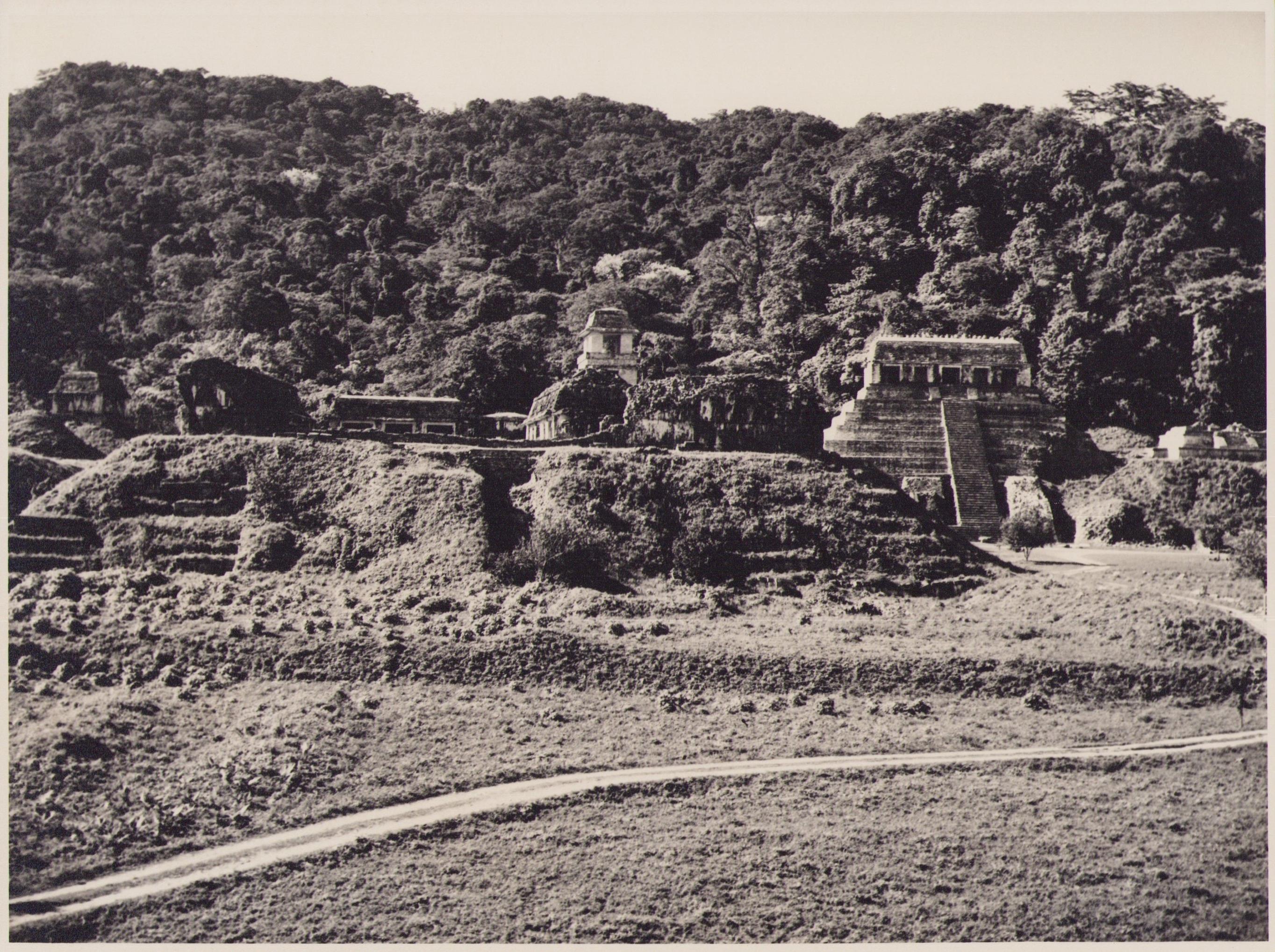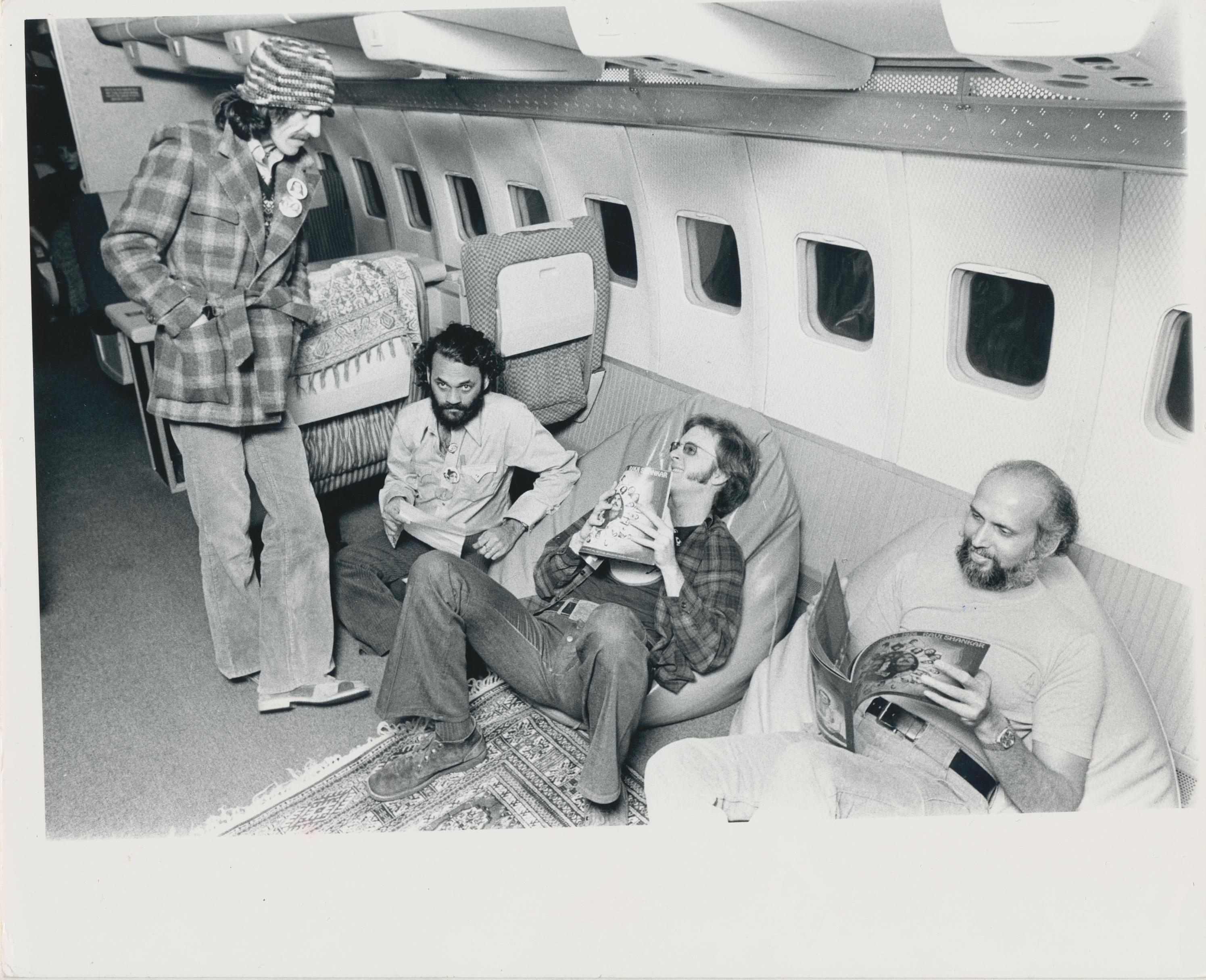Items Similar to Pictorialist Photography, "Pensive Woman"
Want more images or videos?
Request additional images or videos from the seller
1 of 4
UnknownPictorialist Photography, "Pensive Woman"Circa 1910
Circa 1910
About the Item
Pictorialist photograph of a young woman. Silver print in the original oak frame. Inscribed on reverse R.S. Paddock, Early 20th century.
Pictorialism is the name given to an international style and aesthetic movement that dominated photography during the later 19th and early 20th centuries. There is no standard definition of the term, but in general it refers to a style in which the photographer has somehow manipulated what would otherwise be a straightforward photograph as a means of "creating" an image rather than simply recording it. Typically, a pictorial photograph appears to lack a sharp focus (some more so than others), is printed in one or more colors other than black-and-white (ranging from warm brown to deep blue) and may have visible brush strokes or other manipulation of the surface. For the pictorialist, a photograph, like a painting, drawing or engraving, was a way of projecting an emotional intent into the viewer's realm of imagination.[1]
Pictorialism as a movement thrived from circa 1885-1915, although it was still being promoted by some as late as the 1940s. It began in response to claims that a photograph was nothing more than a simple record of reality, and transformed into an international movement to advance the status of all photography as a true art form. For more than three decades painters, photographers and art critics debated opposing artistic philosophies, ultimately culminating in the acquisition of photographs by several major art museums.
Pictorialism gradually declined in popularity after 1920, although it did not fade out of popularity until the end of World War II. During this period the new style of photographic modernism came into vogue, and the public's interest shifted to more sharply focused images. Several important 20th century photographers began their careers in a pictorialist style but transitioned into sharply focused photography by the 1930s.
This style is defined first by a distinctly personal expression that emphasizes photography's ability to create visual beauty rather than simply record facts.[4] However, recently historians have recognized that pictorialism is more than just a visual style. It evolved in direct context with the changing social and cultural attitudes of the time, and, as such, it should not be characterized simply as a visual trend. One writer has noted that pictorialism was "simultaneously a movement, a philosophy, an aesthetic and a style."[5]
Contrary to what some histories of photography portray, pictorialism did not come about as the result of a linear evolution of artistic sensibilities; rather, it was formed through "an intricate, divergent, often passionately conflicting barrage of strategies."[6] While photographers and others debated whether photography could be art, the advent of photography directly affected the roles and livelihoods of many traditional artists. Prior to the development of photography, a painted miniature portrait was the most common means of recording a person's likeness. Thousands of painters were engaged in this art form. But photography quickly negated the need for and interest in miniature portraits. One example of this effect was seen at the annual exhibition of the Royal Academy in London; in 1830 more than 300 miniature paintings were exhibited, but by 1870 only 33 were on display.[7] Photography had taken over for one type of art form, but the question of whether photography itself could be artistic had not been resolved.
Some painters soon adopted photography as a tool to help them record a model's pose, a landscape scene or other elements to include in their art. It's known that many of the great 19th century painters, including Delacroix, Courbet, Manet, Degas, Ce´zanne, and Gauguin, took photographs themselves, used photographs by others and incorporated images from photographs into their work.[8] While heated debates about the relationship between photography and art continued in print and in lecture halls, the distinction between a photographic image and a painting became more and more difficult to discern. As photography continued to develop, the interactions between painting and photography became increasingly reciprocal.[9] More than a few pictorial photographers, including Alvin Langdon Coburn, Edward Steichen, Gertrude Ka¨sebier, Oscar Gustave Rejlander, and Sarah Choate Sears, were originally trained as painters or took up painting in addition to their photographic skills.
It was during this same period that cultures and societies around the world were being affected by a rapid increase in intercontinental travel and commerce. Books and magazines published on one continent could be exported and sold on another with increasing ease, and the development of reliable mail services facilitated individual exchanges of ideas, techniques and, most importantly for photography, actual prints. These developments led to pictorialism being "a more international movement in photography than almost any other photographic genre."[10] Camera clubs in the U.S., England, France, Germany, Austria, Japan and other countries regularly lent works to each other's exhibitions, exchanged technical information and published essays and critical commentaries in one another's journals. Led by The Linked Ring in England, the photo-secession in the U.S., and the Photo-Club de Paris in France, first hundreds and then thousands of photographers passionately pursued common interests in this multi-dimensional movement. Within the span of little more than a decade, notable pictorial photographers were found in Western and Eastern Europe, North America, Asia and Australia.
Secessionist.
- Creation Year:Circa 1910
- Dimensions:Height: 10 in (25.4 cm)Width: 6 in (15.24 cm)Depth: 1 in (2.54 cm)
- Medium:
- Movement & Style:
- Period:
- Condition:
- Gallery Location:Rochester, NY
- Reference Number:
About the Seller
5.0
Vetted Seller
These experienced sellers undergo a comprehensive evaluation by our team of in-house experts.
1stDibs seller since 2021
27 sales on 1stDibs
Typical response time: 12 hours
- ShippingRetrieving quote...Ships From: Rochester, NY
- Return PolicyThis item cannot be returned.
More From This SellerView All
- Vintage Photograph of a Modern SculptorLocated in Rochester, NYVintage photograph of an unknown abstract sculptor. In metal frame.Category
Mid-20th Century Modern Black and White Photography
MaterialsSilver Gelatin
- Pictorialist Photograph Nude Wood Nymph by Charles Cook Circa 1910Located in Rochester, NYPictorialist photograph of nude woman in a forest interior by Charles Cook. Silver print. Circa 1910. Charles J. Cook was a painter and photo...Category
1910s Nude Photography
MaterialsSilver Gelatin
- Black and White Photographs of Classical Male Nude Sculpture Set of ThreeLocated in Rochester, NYMid 20th century black and white photographs of classical sculpture. Set of three. As Mr Codax collected Czech photographers. Unsigned. Matted and framed. Provenance: Estate of Phill...Category
Mid-20th Century Nude Photography
MaterialsSilver Gelatin
- Mammoth Photograph of Notre DameLocated in Rochester, NYGrand tour 19th century photograph of Notre Dame Cathedral, late 19th century. Matted. Unframed.Category
Late 19th Century Black and White Photography
MaterialsPaper
- Vintage Nude Black and White Photograph by Josef EhmBy Josef EhmLocated in Rochester, NYVintage black and white photograph, photography by Josef Ehm. "Resting Model II", circa 1960s, gelatin silver print. Framed size 10.5" x 13.5" . Image measures 8.5" x 6.5" Josef Ehm: Czech, 1909-1989. Born in Habartov. Apprenticed in professional photography studios until 1928. Taught at the State...Category
Mid-20th Century Modern Figurative Photography
MaterialsSilver Gelatin
- Large Collection of 27 Strongman Photographs Circa 1920 BodybuilderLocated in Rochester, NYLarge collection of early 20th century strongman photographs. Each 5" x 7" silver gelatin photographs. Circa 1920. Would make a wonderful framed grouping. Unknown photographer.Category
Early 20th Century Figurative Photography
MaterialsPhotographic Paper, Silver Gelatin
You May Also Like
- Simon Le BonBy Andy WarholLocated in Belgravia, London, LondonGelatin Silver Print Paper size: 10 x 8 inches Framed size: 26.5 x 22.5 inches Dated 'Apr 29 1982' on the reverse Provenance: Private collection, New York This work originates fr...Category
20th Century Modern Black and White Photography
MaterialsSilver Gelatin
- Bert Hardy 'Mercedes Racer' Limited Edition Photograph by Getty, 20x24Located in San Rafael, CAArgentinian race car driver Juan Fangio (1911 - 1995) in his Mercedes at Le Mans, June 1955. The race saw the death of Mercedes team mate Pierre Levegh and 80 spectators. Original Pu...Category
1950s Modern Black and White Photography
MaterialsPhotographic Paper, Silver Gelatin
- George Harrison, Plane, Black and White Photography, 20, 7 x 24, 5 cmBy Henry GrossmanLocated in Cologne, DEThe Beatles were an English rock band formed in Liverpool in 1960. With a line-up comprising John Lennon, Paul McCartney, George Harrison and Ringo Starr, they are regarded as the mo...Category
1970s Modern Black and White Photography
MaterialsSilver Gelatin
- Ecuador, Woman, Market, Black and White Photography, 1960s, 28, 2 x 23, 1 cmLocated in Cologne, DEHanna Seidel (1925 to 2005) lived and worked in Argentina for many years. She was a world traveller, journeying to South America in the 1950s and to Central America, Japan, India, an...Category
1960s Modern Portrait Photography
MaterialsBlack and White, Silver Gelatin
- Guatemala, Market, Black and White Photography, ca. 1960s, 24 x 24 cmLocated in Cologne, DEHanna Seidel (1925 to 2005) lived and worked in Argentina for many years. She was a world traveller, journeying to South America in the 1950s and to Central America, Japan, India, and the USSR in the 1960s.In the invitation to an exhibition of her works in 2003, one reads: "Hanna Seidel, observing the world through her camera lens, could capture everyday situtations in a unique manner."A touring exhibition containing 100 selected photographs entitled "From Rio Grande to Cape Horn...Category
1960s Modern Portrait Photography
MaterialsBlack and White, Silver Gelatin
- Guatemala, Man, Black and White Photography, ca. 1960s, 23, 1 x 17, 1 cmLocated in Cologne, DEHanna Seidel (1925 to 2005) lived and worked in Argentina for many years. She was a world traveller, journeying to South America in the 1950s and to Central America, Japan, India, an...Category
1960s Modern Portrait Photography
MaterialsBlack and White, Silver Gelatin
Recently Viewed
View AllMore Ways To Browse
Paint Antique Black
Paint Antique White
Blue And White French
Antique Frame White
Antique White Frame
Antique American White
American Antique White
All Oak Black
Blue White Japanese
Japanese Blue And White
Blue White Service
Antique Black Rings
Antique Black Ring
Black Antique Ring
Antique Frames Black And White
Blue And White Warmer
Black Aesthetic Movement
White Oak Antique
